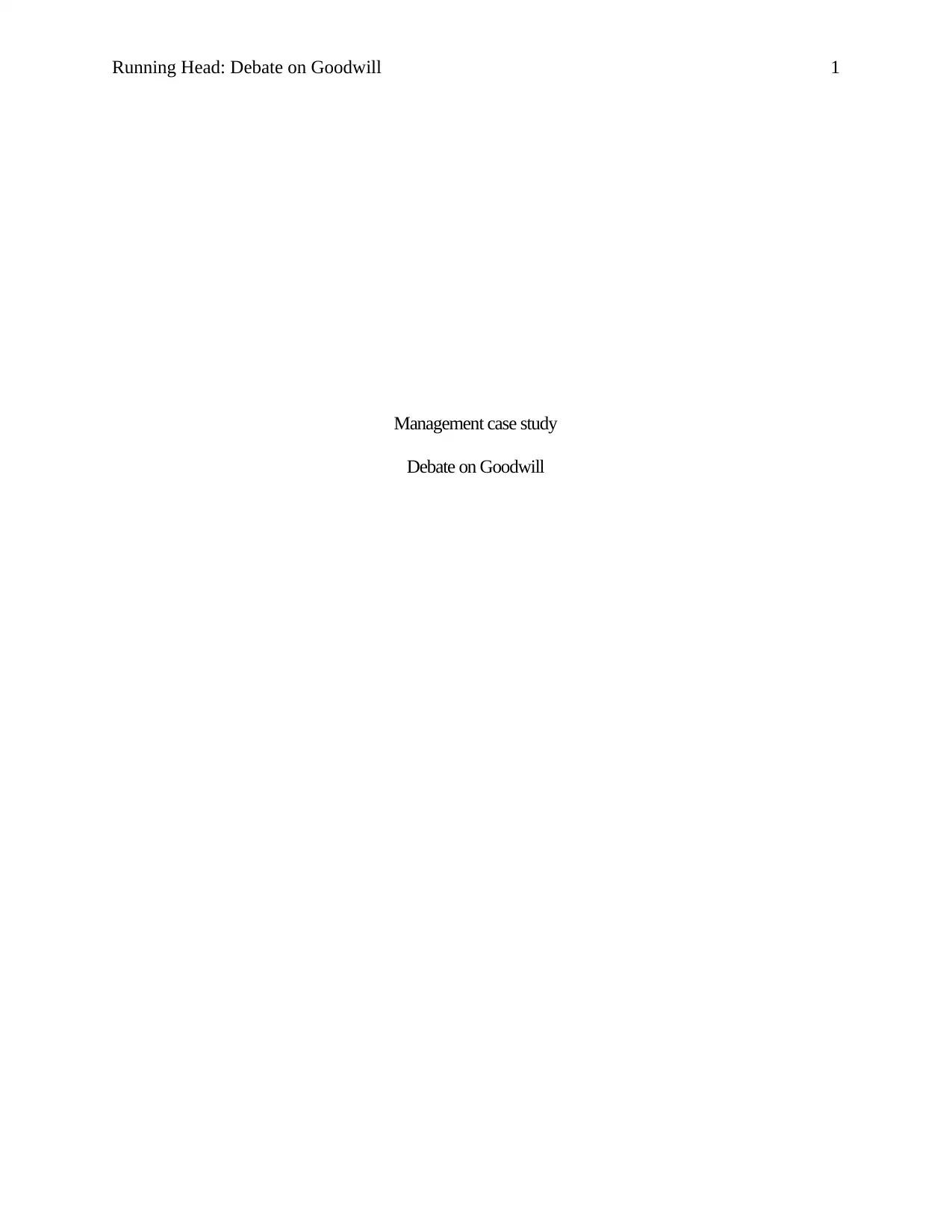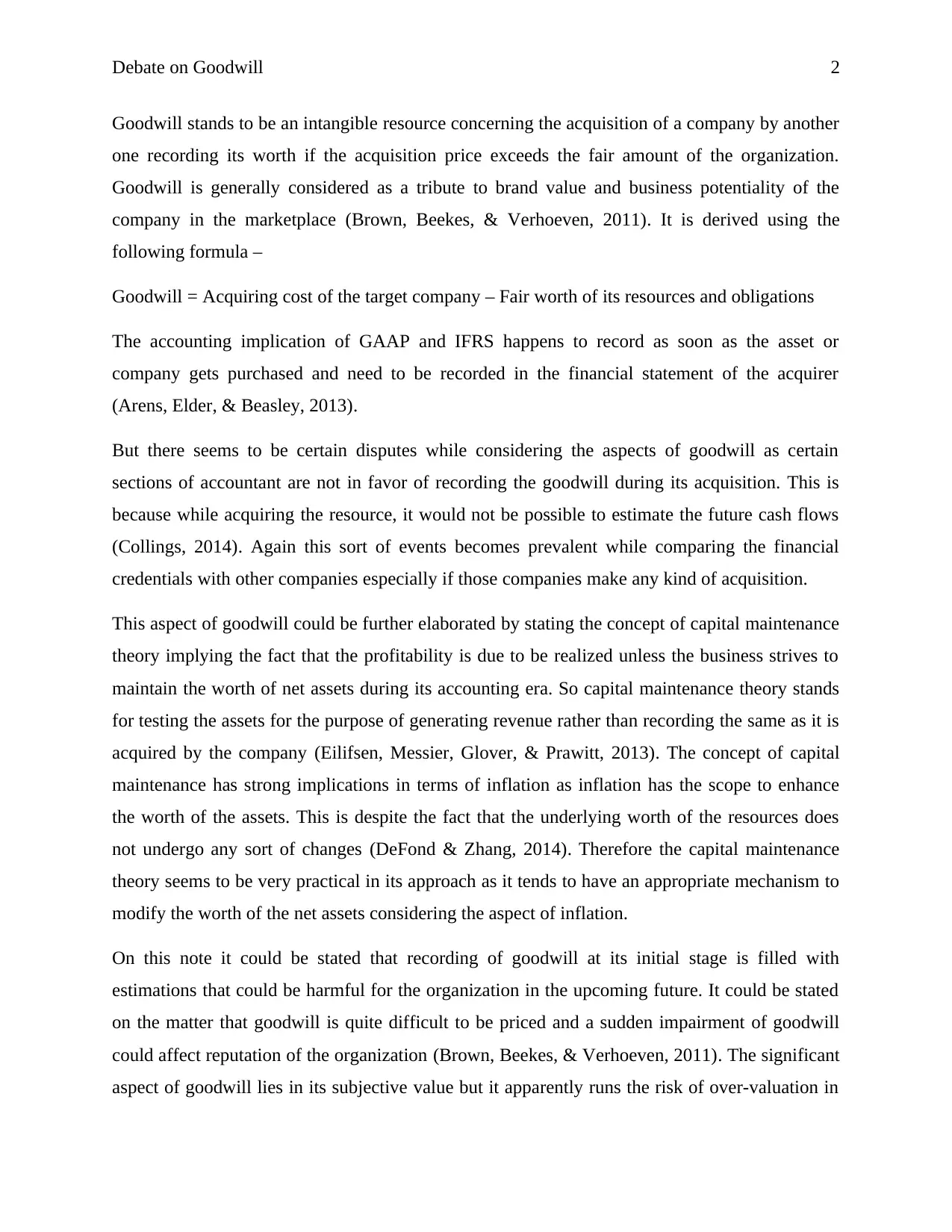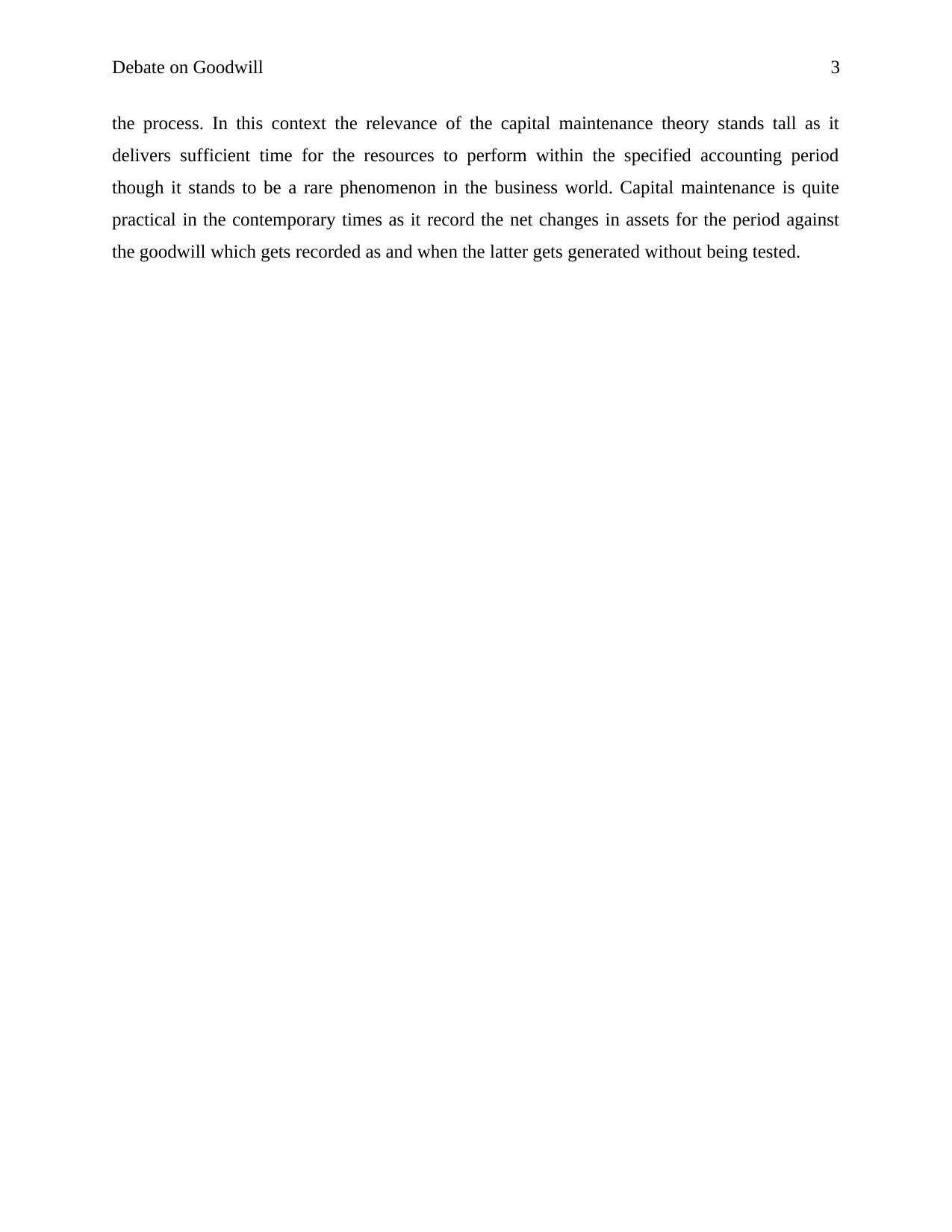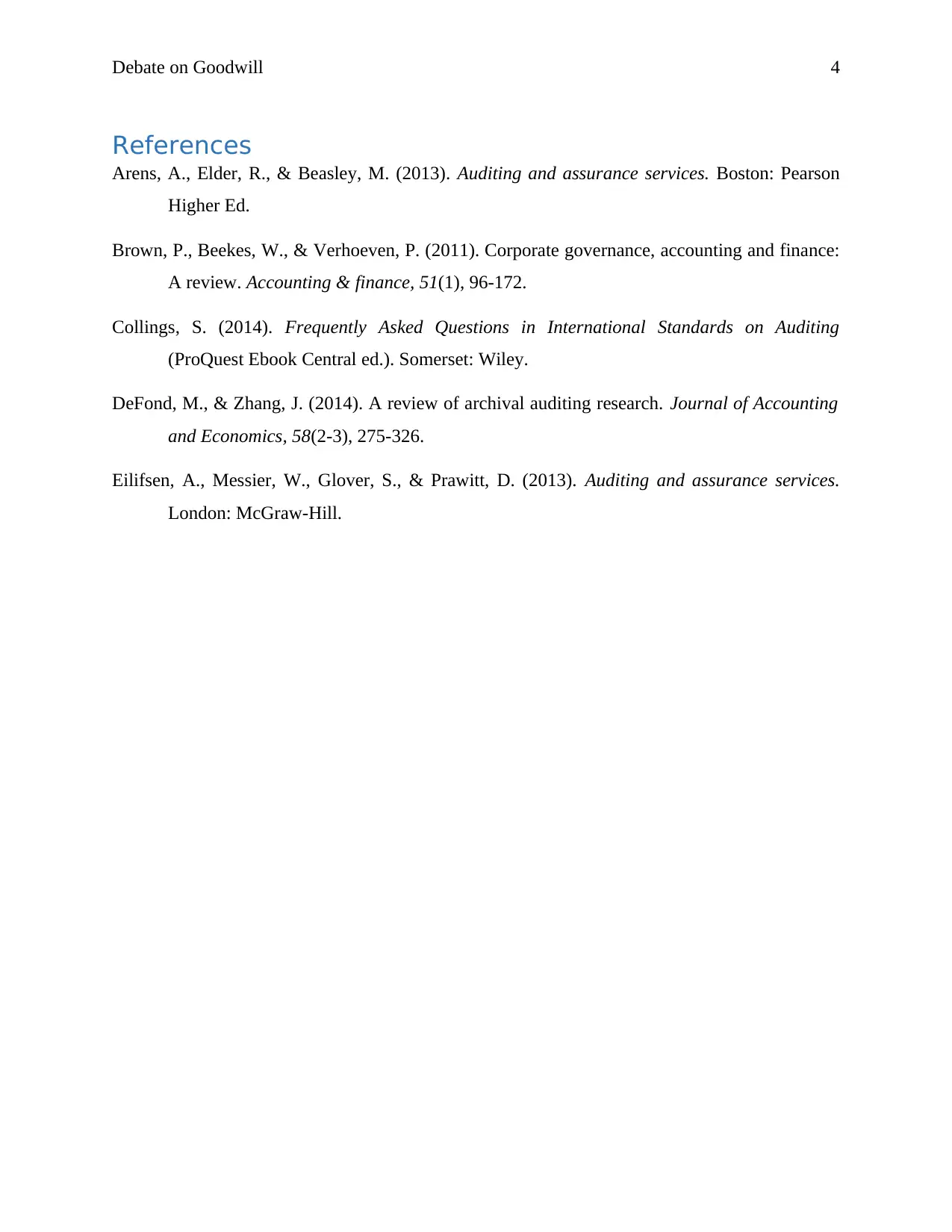Finance Module: Debate on Goodwill Capitalization Arguments
VerifiedAdded on 2023/04/17
|4
|614
|102
Discussion Board Post
AI Summary
This discussion post presents arguments against the capitalization of goodwill in financial accounting, specifically focusing on the perspective of Team 2 in a debate. The assignment explores the implications of Generally Accepted Accounting Principles (GAAP) and International Financial Reporting Standards (IFRS) regarding goodwill, an intangible asset representing the excess of the purchase price over the fair value of a company's net assets. The author argues against recording goodwill at the time of acquisition due to difficulties in estimating future cash flows and potential issues in comparing financial credentials across companies. The discussion emphasizes the relevance of the capital maintenance theory, highlighting the importance of assets generating revenue rather than simply recording them. The post critiques the initial valuation of goodwill, its subjective nature, and the risk of over-valuation. The arguments suggest that the capital maintenance theory provides a more practical approach as it allows for the asset to perform within the specified accounting period before recognizing it, as opposed to immediate recognition based on estimations.
1 out of 4











![[object Object]](/_next/static/media/star-bottom.7253800d.svg)